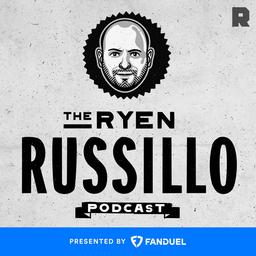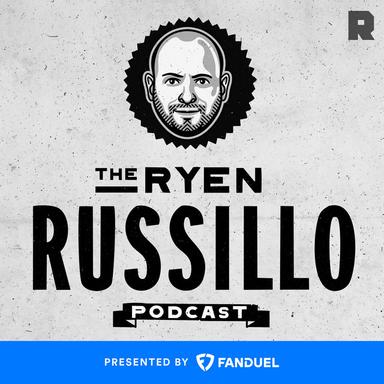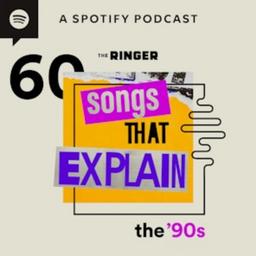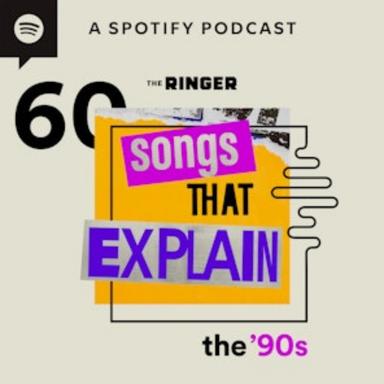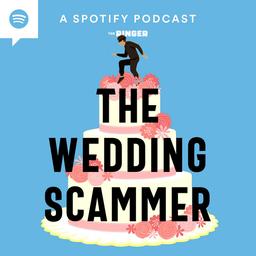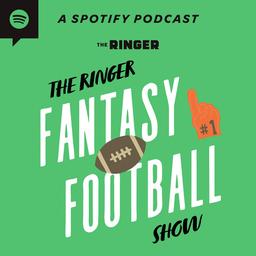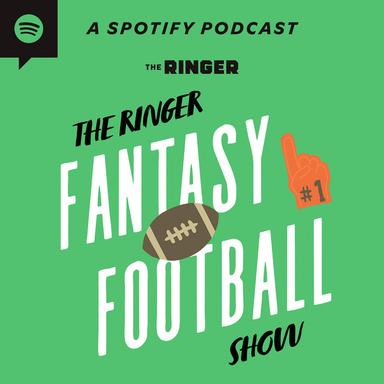The Best Calls in Ringer History
To celebrate our new website—and the start of a new era—we asked our staff to choose their favorite thing The Ringer has ever done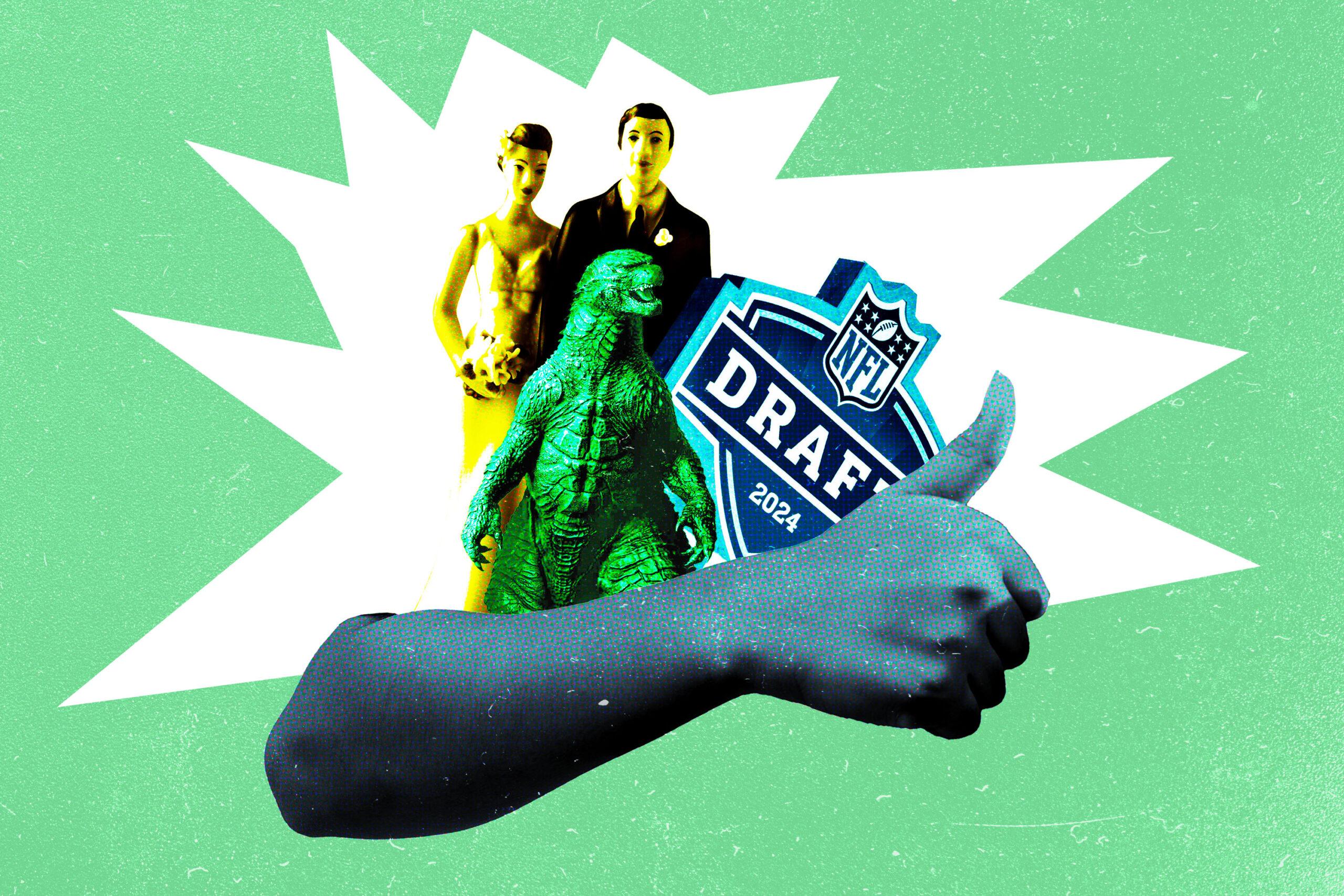
Maybe you’ve heard—The Ringer has a brand-new website. To celebrate this new era, we wanted to look back, so we asked our staffers two questions: What is your favorite thing The Ringer has ever done? And what is an ice-cold take of yours that you still kinda stand by? The mea culpas (and stubborn lack thereof) can be found here. Below are a few of our favorite things.
What is your favorite thing The Ringer has ever done?
“The Curious Case of Bryan Colangelo and the Secret Twitter Account”
Easy answer: Ben Detrick’s “The Curious Case of Bryan Colangelo.” A strange, rigorously executed story that took several months to pull off, and everyone who worked on it—Ben (who was ingenious during the reporting), our editors and copy desk, the art department, our social team—nailed it. It’s not the sort of story The Ringer typically pursues—and these don't come along too often—but after it was published, there was a real thrill to watching it find so many readers. It helped elevate our start-up that had been around for less than two years into something that felt more sustainable. —Sean Fennessey
Plus the Accompanying Bits
The “Curious Case” piece was amazing—as an effort in investigative journalism, as a critique of the Philadelphia 76ers enterprise, and as something of a comedy, though only because of its wild and revelatory details. (“That is a normal collar. Move on, find a new slant.”)
I also love this piece because it launched multiple bits on The Ringer’s Emmy Award–winning NBA Desktop series, eventually leading to a clip of Jason Concepcion holding a fake press conference as Colangelo and blaming it all on [extremely Borat voice] “my wife.” All-time stuff. —Megan Schuster
Speaking of NBA Desktop …
The NBA Desktop video series won an Emmy. Case closed. It also happened to provide my favorite 10 minutes on the internet every week, thanks to its boundless creativity, humor, and unique point of view on NBA esoterica. —Zach Kram
The Best TV Character Bracket
We all had too much time on our hands. That’s the theme here. It was late March of 2020: Everyone had spent the last couple weeks locked in their homes, and we were quickly approaching the dreadful realization of: “Oh shit, this is gonna go on for a while, huh?” Pandemic life was truly beginning.
And, look, I obviously don’t cherish much from that godforsaken period of history. But I also look back on the week when we here at The Ringer staged the Best TV Characters of the Century Bracket—our first real bracket of many—and I can’t help but be a little deliriously proud. First, the bracket itself. Sure, mistakes were made, both by us (Fleabag as a 2-seed now looks like a pretty bad case of recency bias) and by you (did y’all really give Walter White nearly 66 percent of the vote over Tony Soprano?!), but it was an incredibly fun weeklong competition full of upsets, trolling via Eric Cartman, and tight decisions that ended with a worthy winner in Michael Scott. And then there was the other stuff around the tournament: Nick Offerman, Elisabeth Moss, Will Arnett, and Timothy Simons all talking to us about why their respective characters should win; Mike Schur explaining to Ben Lindbergh what makes a great TV character.
And, of course, there was also the Gob Bluth incident, in which a Ringer reader hacked our polls in an effort to propel the Arrested Development failson to the title and then sent us emails about it like a friggin’ digital, low-rent Zodiac Killer—something that absolutely could have happened only during a time when we were all stuck inside, losing it a little, with nothing better to do. I don’t know. Maybe I’m being too nostalgic about an era that doesn’t deserve it at all. But for one week during an extremely lonely time, this bracket gave us a tiny—but meaningful—sense of community. —Andrew Gruttadaro
The Annual Metal Draft
Listen. I have tremendous respect for all my sports colleagues: every league, every medium, every advanced stat I pretend to understand, every grievous insult to my beloved and awful Cleveland Browns, every fantasy football ranking I treat like gospel every year even though I always end up drafting too many New York Jets. But I am especially fond of this delightful annual video series, in which Ringer NFL draft genius Danny Kelly breaks down the best prospects and most desperate teams while fellow Ringer genius Chris Ryan yells stuff like: “THIS GUY MAKES LEONIDAS LOOK LIKE JOHN GOODMAN!” and “A.J. EPENESA’S THREE-CONE DRILL MADE ME SEXUALLY AROUSED!” and “THIS GUY GREW UP HUNTING FERAL HOGS IN ARKANSAS AND KILLED THEM WITH A KNIFE! I HAVE NO NOTES!” and “ROLL TIDE! ON THE RIVER STYX!” and “THESE GUYS WILL PROBABLY BE DOG SHIT AGAIN!” He meant the Browns. I still love it anyway. —Rob Harvilla
The Oral History of Alan Siegel
Born some time in 1983, Alan Siegel had a humble upbringing in the suburbs of Boston before stumbling into the most lucrative profession of the 21st century: culture writing. After years of gig work, he caught on at The Ringer, where he became the master of the dark art of the oral history. Perhaps you’ve read him getting John C. Reilly to talk about Walk Hard, or maybe his journey into the mind of Saul Goodman, or perhaps you recall his multiple Prince oral histories. Either way, if you’ve visited The Ringer at all in the past eight and a half years, there’s a decent chance you’ve encountered one of his master works.
Justin Sayles, Ringer content lead, culture: The funny thing about Alan is he’s the nicest, most unassuming guy, but he manages to pull these amazing quotes out of his sources.
Isaac Levy-Rubinett, Ringer editor, NBA: Alan’s oral histories are somehow both incredibly thorough and breezy to read. A lot of writers try to do what he does, but he’s one of one.
Sayles: I could rattle off a half-dozen oral histories of his that I love, but if you want a good place to start, it’s his deep dive into Nirvana’s MTV Unplugged performance—a touchstone of the kind of Gen X/elder millennial nostalgia that Alan does better than anyone else.
James Cameron, director and hobbyist ocean explorer: Why am I being quoted? I’m just some guy Alan’s interviewed. [Editor’s note: This is a made-up James Cameron quote, but Alan has interviewed the famed director several times for excellent oral histories: On Terminator 2 and on Cameron himself.]
In 2024, Alan Siegel reached the logical end of writing these kinds of stories for The Ringer: He interviewed a producer named Alan Siegel—no relation—for an oral history of a goddamn Den of Thieves 2 trailer. The oral history and his history, folding in on themselves. —Justin Sayles
Ryen Russillo’s Solo Iceland Travelogue
I’ve never been to Iceland, but if I go (and I do hope to one day), I will be curious about the eating utensils. In the 2022 travelogue episode of The Ryen Russillo Podcast, Russillo offered an impromptu power ranking of forks based on the paper ones he encountered in that country. I’ve never forgotten it. The entire episode looms large in my memory. Fifteen years into the existence of the podcasting form, it felt like Ryen created something new by stitching together monologue dispatches from various stops along his trip. It made me think about how travel and solo pods could and should factor into the Ringer Podcast Network, but mostly, I had an extremely fun time as I listened to his takes on ferries and fjords and Icelandic hotels. It helps that Ryen has a unique ability to make his listeners care about the minutiae of his travels. The episode is emblematic of what makes podcasting effective: It allows you to feel a part of an experience that you may never have. —Juliet Litman
“Does My Son Know You?” by Jonathan Tjarks
“What is your life? You are a mist that appears for a little while and then vanishes.” (James 4:14)
A couple of years ago, my colleague Jonathan Tjarks died from cancer. He is survived by his wife and young son. As a child, Jon’s father died before he had the chance to get to know him. This story is Jon reconciling how the same thing will happen to his son. “I didn’t need my dad’s money,” Tjarks wrote. “But I could have used some of his friends.” Tjarks is trying to give his son a better life than he had by asking his friends to be present for his son in a way his father’s friends were not. “When I see you in heaven, there’s only one thing I’m going to ask—Were you good to my son and my wife? Were you there for them? Does my son know you?” —Danny Heifetz
We Love You, Tjarks
This is the most important piece of writing that’s ever been published on the site. I think of it often, because I often think of Jon. Sometimes I remember his emails to me, back in 2011, insisting that Caron Butler’s injury wouldn’t derail the Mavs from a title run. (He was right.) I remember going back and forth with him about why he was so certain that a Clippers rookie with a funky, off-speed game was actually a star hiding in plain sight. (It was Shai Gilgeous-Alexander; he was right.) But mostly I remember him as a man, and a husband, and a father—as someone who had seen enough of the world to find himself and to figure out what actually mattered most. He was right about all that, too.
Tjarks wrote this piece in March of 2022, while in the throes of his treatment for a rare form of cancer. In it, he made a plea: for all of us to show up for his wife, Melissa, and his son, Jackson, when he no longer could. Jon died less than six months later. I am blown away not just by his message but its clarity. Jon lost his own father when he was far too young and knew that the waves of condolences, sincere though they may be, eventually recede. This essay was the means for my friend to provide for his family. And the way he chose to do that was to remind us, as we move hurriedly through our lives, what it’s all for. —Rob Mahoney
Adam Nayman’s Movie Reviews—Don’t Make Me Pick One
These are not boom times for criticism, either as a medium or as a mindset, and the culture-wide desiccation of aesthetic thinking in general is one of the reasons I’m always so thrilled to have Adam Nayman’s film reviews on The Ringer. In an era when considering a film increasingly means analyzing its implications for a celebrity’s career (I don’t care) or its positioning with respect to a fandom (I don’t care and am falling alone through the vacuum of space), Nayman’s sharp, stylish, and entertaining essays regularly help me understand the movies as art: that is, as experiences that can be better grasped and appreciated by thinking through the human choices out of which they’re made.
Take his review of Dune: Part Two. I’m including it not so much because it’s my favorite Nayman review—I don’t have a favorite—but because it came out on my birthday, and its evocation of a magnificent spectacle unable to escape its own ponderous gravitational pull felt like a gift. (If the entire essay had been the three-word phrase “heavy-bottomed megatonnage,” it probably still would have been my favorite Dune: Part Two review.) I’d like to live in a world where this kind of film writing—the kind that’s still enchanted by what happens between a viewer and a movie in the dark—could be found on every culture site. Since I don’t live in that world, I’m doubly appreciative of Nayman’s work, and proud that so much of it lives here. —Brian Phillips
F-Word Friday
There are a lot of rankings on the internet and there’s a lot of foul language, too. But there’s only one Ringer, and thus only one place where the potty-mouthed power-rankers of the digital age can achieve profane pop culture apotheosis. The Ringer is a bastion of brilliance, a home for skillful reportage and well-honed expertise, thoughtful commentary and fostered community. But we also like to say that The Ringer is a vibe. It’s a place where we can dick around with our pals. Where we can laugh and cry and lean into our passions. Where we can apply unflinching rigor to what might seem to untrained eyes like a menial or frankly bizarre task.
It is a place, in other words, where we can chronicle every single utterance of the word “fuck” in Succession as though parsing a holy text. On the eve of the series’ final season, the Ringer’s intrepid audience engagement manager, Austin Gayle, rewatched the prior three installments and charted every whispered or shrieked swear, charting the volcano of vulgarity in positively Kornackian fashion. No one asked Austin to do this. He could have channeled the Roy children and waited for others to toil, but he decided to walk the teak planks with his own bare feet, luxuriating in the pursuit of something tangible and decisive and known in an increasingly unknowable world.
And like a perhaps misguided but undeniably trailblazing tycoon gathering disciples in the ATN newsroom, he inspired others to share in his discoveries. And so, our team readied to honor Logan and Co. not with an instantly infamous party song, but with a ranking of the 100 best fucks (not that kind, though let’s file that idea away for another day!) in this paragon of prestige TV. It was good—though not necessarily clean—fun, and it remains an encapsulation of why I love The Ringer. There’s wit, there’s charm, there’s insight, there’s care. (Too much care, you might say.) There’s an insistence on going all in, a passion and a spirit that is authentically ours. If you don’t agree, well, you know what Logan would tell you: Fuck off. —Mallory Rubin
Journeying Into the Darkest Depths of “Take” Culture
In a 2016 essay for Quartz, tech journalist John West posited that the take—the sometimes glib, often incendiary casual brand of opinion that powers the internet—is “a black hole from which no attention can escape.” And if you’re the type of person who’s reading a meta piece about a sports and culture website’s history in 2024, then you can surely recall hours, even days, lost to a scorcher. The tweets, the blogs, the TikToks reacting to the tweets and blogs—all feed into the Take-Industrial Complex, and many will consume you. It doesn’t matter whether you’re Against Russ or For Russ. It just matters that you care enough to let one of those stances rile you up. Or, to put it more succinctly and quote Ringer head of content Sean Fennessey’s opening line of the aforementioned anti-Westbrook column: “It is possible to be both amazing and wrong.” Though for our purposes, the latter part isn’t as important as the rest.
This is the mindset that fuels Takehunter, which gets my vote for best Ringer original video project (though shouts to “The Worst Fantasy Football Draft of All Time”) and is on the short list for the best things this company has ever created. For the uninitiated, who will hopefully initiate themselves soon, the four-part series is inspired by the sorely missed David Fincher Netflix series Mindhunter. It’s the brainchild of some of our past and present video whizzes, including Jason Gallagher and Cory McConnell, and it stars Chris Ryan, Jason Concepcion, and Micah Peters as three agents of NBA blogging searching for something deeper—something more raw and real—that can make them feel again. They find it in the form of Tyler Parker, who in his intro to the Ringer universe, finds a way to marry the menace of Edmund Kemper and gleeful smugness of Skip Bayless—a cold-blooded take artist not afraid to speak truths, like Ron Harper should’ve gotten Michael Jordan’s minutes, or that Steve Francis should’ve won the dunk contest over Vince Carter, or that Marco Belinelli was the Process. It didn’t matter that he didn’t believe them. It just mattered that you believed he believed them.
Takehunter works for reasons both universally thrilling—CR goes full Pacino/Scent of a Woman on ’em in the third installment—and personally nostalgic. (Our original offices in Sunset Gower Studios had a, let’s say, charm that made them look like they could double as a set from Mindhunter.) Takehunter’s also a prime showcase for netw3rk, to date our only Emmy winner (even if that award’s just a poor man’s Webby), and it somehow allowed us to rope in Daryl fucking Morey. But what I admire most about Takehunter is how it gets to the core of every provocateur you’ve ever encountered on Al Gore’s information superhighway: “Everyone on the internet is very stupid,” Tyler says in the OG Takehunter. “They want to be upset. And I fulfill that for them. I make their dreams come true.” That’s the ultimate online black hole, and it’s one take worthy of trapping your attention, now and always. —Sayles
The Field Guide to Celebrities at Madison Square Garden
One of the great joys of this job is witnessing someone brilliantly executing the thing it seems they were put on this planet to do. I have had this experience hearing Russillo do travelogues, reading Danny Chau’s writing about food, and watching Tyler Parker play a blowhard morning show host on Wake Up and Dunk It, but the one I want to celebrate is this blog post from relatively early in The Ringer’s run: Sam Donsky on celebs attending Knicks games at Madison Square Garden. Anyone with access to Getty Images will tell you this is one of the great social landscapes in America—a place where Larry David will look miserable sitting next to Justin Bartha, Meryl Streep will look delighted to be slotted alongside 50 Cent, and Dakota Fanning’s dad will ruin any shot she had with Michael B. Jordan. Sam was a master at drilling down on ephemera to the point where the superficial became profound. Which is to say he was an excellent blogger. It’s my favorite kind of Ringer piece. —Chris Ryan
Profiling Dril
With everything happening in the world these days, the one song that’s been stuck in my head when it comes to Twitter is the Clash’s “Should I Stay or Should I Go.” In thinking about what has kept me on the platform for years, Nate Rogers’s profile on Dril rises to the surface. Dril embodies the inherent pandemonium that is contained in our timelines every day. (And, lucky for me, Dril is still Dril-ing on Bluesky.) Getting a close look at one of my favorite mysterious comedy auteurs is a welcome gift. —khal
Profiling Godzilla
I’m a sucker for a good profile, and The Ringer is chock-full of them. The subjects have ranged from poetic shitposter Dril to ultramarathon runner Courtney Dauwalter, but there’s one who stands—nay, towers—above the rest: Godzilla. When presented with an offer to spend the day with the king kaiju himself, my colleague Miles Surrey made the courageous decision to accept. What followed was a once-in-a-lifetime look into Godzilla’s acting approach, relationship with Kong, body image, and so much more. And, yes, Godzilla did raze much of New York as he and Miles toured the city, but such is the price of hard-hitting journalism. —Anna Done
Chris Ryan and Andy Greenwald EVISCERATE The Rise of Skywalker
If Chris Ryan and Andy Greenwald ever put together a Watch anniversary clip show—hosted by the delightful Christine Baranski—I doubt anyone will remember the episode they devoted to Star Wars: Episode IX–The Rise of Skywalker. I think about that episode a couple of times a year. Here, two guys with enormously generous critical spirits, keen to the intentions of creators, were presented with a turd, a movie that really did steal away our childhoods—a critical amber alert. Chris and Andy are not capable of going the full Stephen A. But they gave that space opera the precise and merciless drubbing it deserved. You can have the episodes about Succession and Monsieur Spade. I’ll take Chris and Andy on fake-dead Chewie any day of the week. —Bryan Curtis
Our Illustration of Harry Potter and Chewbacca Riding a Roller Coaster

The work done by the art team has always been one of my favorite parts of The Ringer. David Shoemaker, Matt James, Neil Francisco, Jonathan Bartlett, and many talented freelance artists have been producing wonderful, eye-catching illustrations for the site and podcast network for years. But I wanted to give a special shout-out to one Ringer illustration in particular, by Alycea Tinoyan, who left the company in 2021. Tinoyan’s original artwork would consistently draw me into reading pieces on the site, whether it was about Game of Thrones, DC Comics’s exploration of superhero mental health, or an investigation into the rightful owner of America’s ass. My personal favorite is from a piece written by Hal Sundt in 2020 about Disney’s evolving amusement parks. —Daniel Chin
Andrew Gruttadaro’s Intrepid Reporting, Such as Asking an Olympic Javelin Thrower About the Night King’s Spear Toss
The Ringer has produced so many of the all-time great Game of Thrones–inspired works of art that I should say it’s impossible to pick just one. But that wouldn’t be true, because it’s easy for me to pinpoint my target with laser-like accuracy. You know, kind of like how the Night King did that one time when he threw the ice spear at the dragon! Much was written about that scene in 2017, but no one did it like The Ringer’s Andrew Gruttadaro, who hopped on the blower with an Olympic javelin thrower to dig into the Night King’s form. (Sample Q: “What do you mean when you say he’s not patient enough?”) My favorite Ringer stories are always the ones where we take something very silly very seriously, and Andrew’s work—from an oral history of one of One Tree Hill’s most (I hope) preposterous scenes to this sweater roundup—is always the best of the best of the genre. —Katie Baker
Ben Lindbergh’s Similarly Intrepid Investigation Into the Healing Properties of Hand Jobs
Over the last eight years, I've had the honor of watching my colleagues pull off monumental projects that require weeks or months of work to come together: dazzling features, sweeping oral histories, gripping podcasts, dizzying rankings, hilarious videos, gorgeous art, even an amazingly in-depth bespoke style guide—the list goes on and on. But I find myself returning over and over to that humble workhorse of aughts media: the blog. There are many who proclaim that the era of the blog has come and gone; my Ringerers-in-arms prove the naysayers wrong week in and week out. Blogs are almost by definition meant to be ephemeral—a snappy response to the zeitgeist written in the feverish glow of forever-ebbing water cooler chitchat. It's rare when one is so on the pulse that it endures, but that's precisely what Ben Lindbergh pulled off in his 2020 oeuvre, "Can a Hand Job Heal a Broken Heart? An ‘Outlander’ Investigation." As you may have guessed, this (ahem) came in the wake of an Outlander episode in which a character saves her at-death's-door lover by manually servicing his nether regions. It is one of weirder plot devices I have ever witnessed in a lifetime of watching too much television (it probably had the title until the Sugar twist earlier this year), and Ben perfectly skewered the moment—and got actual doctors to weigh in, to boot. It is rare to see a perfect encapsulation of an art form, but that's what we have here. Perfect blog, 10/10. —Claire McNear
60 Songs That Explain the ’90s
At the risk of making Rob Harvilla super uncomfortable (for at least the 15th time), it’s 60 Songs That Explain the ’90s. And not just because I’m a nostalgia-addicted dork who yearns to relive his 20s (though, yeah, guilty). Music is so much more than rhythm and melody and lyrics. It’s about a feeling—a time, a place, a person, a vague sensation, or something entirely ineffable. That’s the magic of this series. The artist histories and backstories and influences are all there, of course; but it’s the way Harvilla layers it with moments and memories and a certain wryness befitting the era. (Really, he sorta sounds like the ’90s.) His passion always comes through. The pod is so damn good that it doesn’t even matter if I like the song or the artist. That the series launched in October 2020, during the dark days of COVID-induced solitude, just made it that much more essential, and appreciated. As a devout R.E.M. fan, I’ve even forgiven Rob for allowing a guest to impugn my favorite band. And Rob, in turn, has kindly responded to all my rambling emails and let me take a selfie with him (in my R.E.M. T-shirt, natch, when we finally met in October). —Howard Beck
“The Songs We Didn’t Do (Everyone Yells at Rob)” From 60 Songs
Unfortunately—or quite fortunately, depending on your perspective—for all of Rob’s excellence in critical prose, verbal delivery, and pop culture documentation, he’s at his best when he’s being heckled. I sympathize with this, for I too am someone who is generally received best when being criticized and/or roasted. But that don’t change the facts. The podcast title is a lie! The scripts are Old-Testament long! He’s not a “stentorian voiced dudely bro,” Courtney! Should’ve had more Wu-Tang. Should’ve had more Tribe. He didn’t even pick “Ms. Fat Booty”! —Lex Pryor
“Confessions of a Postmates Addict”
Mallory Rubin ordered from food delivery services 705 times in 1,254 days. And contrary to how a lot of our colleagues feel about her still-thriving addiction, I think there’s actually a lot to love about it. She eats the best food L.A. has to offer in pajamas with her precious cat and husband essentially every other day. That is objectively awesome (even if it is also objectively ridiculous). I’m fine with being an enabler alongside Adam, her husband, and would in fact like to formally request a follow-up to this delicious blog because I have a few questions:
- Mal, have you ever befriended a delivery driver? You said there was a three-and-a-half-year stretch when you saw the delivery people from Delta Grill more than every immediate family member combined … wait, is your friend group exclusively delivery drivers?
- Has there been any update to the division of labor? Or does Adam still make all of the orders and “rescue the misguided” in his flip-flops? If so, man, what a warrior. Speaking of, is he available for comment? His perspective on this would be such a treat for the sequel.
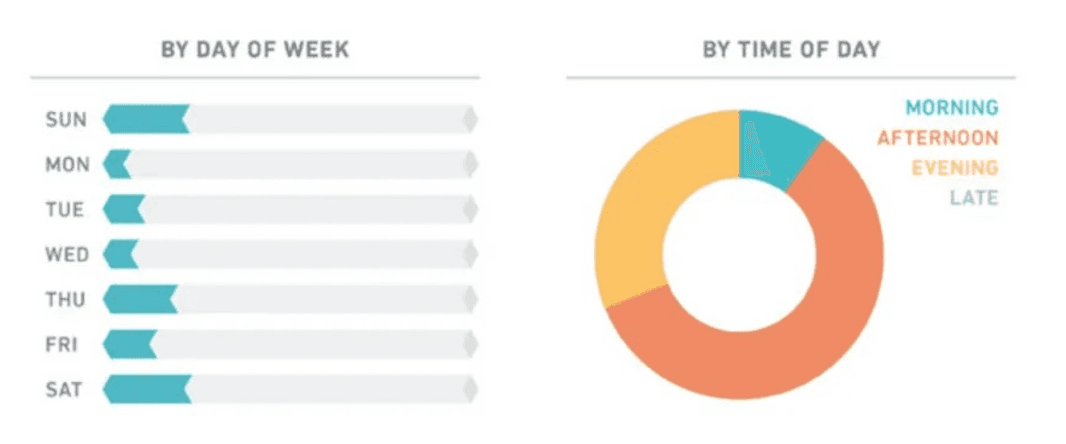
- YOU DIDN’T PLACE A “LATE” ORDER IN ALL OF THAT TIME? NOT ONE LATE-NIGHT T-BELL RUN?! NO MCNUGGIES AFTER DARK?! That is baffling.
- You spent $100 on two sodas, two bags of chips, a roast beef sandwich, and two meatballs either in 2017 or before 2017. How much do you think that would cost now? Do you regret that purchase? Is there a new order screenshot that tops that one in terms of absurd delivery costs?
- Can you follow up with the Postmates spokesperson to see whether they still have their job? Postmates getting an email from Mal and not drilling down on why she wasn’t an “Unlimited” subscriber was such a missed opportunity. They’re within arm’s reach of actionable feedback from a super user, and they just whiffed. Mal was using the app more than double the typical total for Postmates users who “order all of the time,” per the spokesperson, and Mal DIDN’T pay for their free delivery subscription … She was (is) EXACTLY the person who should be paying for that. If the math didn’t work out or the process was too complicated at sign-up for someone ordering from the app every other day, then there’s a clear problem with the product. No wonder DoorDash has bullied them to a (free delivery) pulp.
- Of course, the cliff-hanger: Can you please give us the same data for Instacart and a self-reflection on the behavior? –Austin Gayle
The Worst Sports Week of the Year
What would happen if the world ended and there were no sports to watch? What depths would we, as a company, plumb to keep pumping out content? What madness would we descend toward as the world fell? I’m not talking about the spring of 2020 when the world, and pretty much all sports, screeched to a halt. I’m talking about a comedy sketch we made in the summer of 2019. Jason Gallagher came up with a sketch about the dog days between NBA and NFL seasons. Throw in a Lil Nas X cult subplot, some props supplied from an army surplus store (I remember asking Isaiah Blakely to buy “the biggest machete you can find”), plenty of hyper-specific 2019 references, some camerawork straight out of 28 Days Later, and you’ve got my favorite (and maybe the most unhinged) Ringer sketch ever made. —Cory McConnell
Our Piece on Bobby Knight and His Enduring Influence in Indiana
Matt Dollinger’s piece on Bobby Knight was not only an incredible piece of writing, but it also revealed so much about Matt as an editor. When we see our editors write, we understand them in new ways. I got really emotional reading the story and that’s because of the power of Matt’s words and because it’s a story only he could write. —Mirin Fader
The Snowman Exit Survey
It’s always a nerve-racking experience to start a new job, but something happened in my first month at The Ringer that eased my worries. Whenever a major release comes out—i.e., the latest Marvel movie, a Star Wars show—our staff contributes to an exit survey because the interest is so high. And yet, for some reason, there were also enough colleagues willing to go see The Snowman, a movie with a 7 percent score on Rotten Tomatoes that its own director admitted he never finished filming. I’m a sicko, so when a disasterpiece in which Michael Fassbender plays a detective named “Harry Hole” comes around, I’ll be there opening night. (Also, times like this is why MoviePass was God’s greatest gift to man.) When The Snowman exit survey went out into the world, the case was closed: I knew I’d found my people. —Miles Surrey
Aaaand Now …
Few things rock the millennial pleasure centers more than the first few twangs of “Sirius,” the Alan Parsons Project song that soundtracked the Bulls dynasty in the ’90s, and in this comprehensive oral history, Chicago-based contributor Jake Malooley lays out its unlikely journey to becoming one of the greatest Jock Jams of all time. There have been more impactful pieces in the company’s history—for instance, the one that directly led to an NBA general manager’s dismissal—but this is the story I think of whenever I try to explain what The Ringer is: an exhaustive deep dive into a subject that’s just left of center of a beloved pop-culture icon, but that means just as much to hardcore fans. —Justin Verrier
Jam Session
For roughly 45 minutes per week I do chores in my apartment and listen to Juliet Litman and Amanda Dobbins on Jam Session cover a sort of scattered assortment of celebrity news topics that somehow all make sense together. And for those 45 weekly minutes I want for absolutely nothing in life. —Nora Princiotti
Every Single Album
I, probably like a lot of you, spent a lot of time with Taylor Swift during the pandemic. It wasn’t just becoming all consumed by her sister albums, Folklore and Evermore, both of which were surprise released in 2020, but it was hours upon hours diving deep into her discography while running by myself, training for races I wasn’t sure would happen, or during those long hours stuck at home with a stir-crazy preschooler. And then, on March 8, 2021, a new Ringer show popped into my podcast feed: Every Single Album, from NFL writer Nora Princiotti and music-industry veteran Nathan Hubbard. And thus my radicalization as an insufferable Swiftie began; after 93 episodes, I feel like Nora, Nathan, and producer Kaya McMullen have given me a PhD-level education in pop music.
In the opening minutes of that first episode of ESA, Nora promised to bring listeners into the private conversations she and Nathan had been having for a year about Taylor Swift’s music and her career. “We’re publishing the thread,” Nora said, adding that in addition to going through Swift’s career, album by album, they’d try to take stock of what Taylor had been up to recently (rerecording her music) and think about what she might do next (turns out, it would be a lot). None of us could have imagined when listening to that first episode—about Swift’s Nashville roots and her debut album—that less than three years later Nora would be explaining the Super Bowl to legions of Swifties (and explaining Swift to listeners of The Ringer NFL Show), but here we are. It’s been a ride.
We lean hard into fandom here at The Ringer—whether that’s NFL or NBA, or nerd culture or Succession or reality TV—and ESA has been a shining example to me of one our guiding principles: If you follow your passions and make content about the things you love, it’ll find a home. —Lindsay Jones
The Postapocalyptic Movie Survivability Index
I used to go camping in Alaska, sometimes in very remote places. And once per trip, my friends and I would engage in the same thought experiment: If we got stuck here, how long could we survive? Would we forage? Could we catch enough fish? Survive the winter? In the end, there was one thing we always agreed on—I would be the first one to perish since I have the fewest survival skills of anyone I know.
But then I read Austin Gayle’s Postapocalyptic Movie Survivability Index. By rewatching 51 dystopian movies in two weeks (that’s 3.5 movies a day), confessing his own flaws (“I don’t really even know how to whisper”), and enumerating data-driven rules for survival (“Rule no. 6: You’re not better than cannibalism”), Austin made the rest of us a playbook for when disaster strikes. The next time I’m camping and the floatplane doesn’t show up or aliens attack, forget my fishing rod. I’m pulling out a copy of this article first thing. —Vikram Patel
A Journey Into the Heart and Heartbreak of Being a Cowboys Fan
As a Texan who’s indifferent to football (yes—there are dozens of us!), I’ve gotten pretty good at tuning out the day-to-day minutiae of the NFL. I’m not particularly interested in who’s winning or losing on a given Sunday, but the sport is not at all absent from my life. How could it be? I’ve spent many a Friday night in the bleachers under the lights, and I’ve spent many a Saturday afternoon sitting in traffic on I-35 as the cheers of more than 95,000 Longhorns fans float by. Football is a part of life in Texas, whether you are personally invested or not.
But sometimes a football story comes along that demands my attention. Just last week, in these very pages, Lex Pryor wrote a sweeping, lyrical feature called “The Divine Comedy of the Dallas Cowboys.” He laid out the Cowboys’ history as an exceptional team (consistently good in the regular season), a disappointing one (haven’t won consecutive playoff games in three decades), and an exceptionally disappointing one (on account of the “not-so-distant hope that this is the time they’ll get their act together and the just-as-close reality that somewhere along the line, they’ll find a way not to”). Somehow, the Cowboys have managed to live up to their audacious moniker; “America’s Team” is by a long shot the most valuable and popular franchise in North American sports, and Lex is right to point out that their annual striving also feels distinctly American. His piece helped me appreciate a fandom that I’ve never quite understood, even as it’s been part of my life for decades. My grandpa was a devout Cowboys fan. My brother-in-law submits himself to the cause every Sunday, and I have a feeling my almost-2-year-old niece will too, someday. I hope, for all their sakes, the next decades will be better than the past ones. —Isaac Levy-Rubinett
The Ringer’s Streaming Guide
Thank you to the place that I work for creating a useful tool for the place that I live: my screens. Any time I can't think of what to watch, or wonder what people are saying about the thing I don't want to watch but need to know about, or am simply too exhausted to identify "movies that don't suck" on my own … I fire up the streaming guide. It looks great, it feels good, and it honors the lost art of a good old fashioned list. —Jodi Walker
When We Found Content in a Hopeless Place (HBO’s The Idol)
The series of written pieces when we sincerely tried to take The Idol seriously and then by the finale just gave up and wrote crazy takes about it. —Justin Charity
The South Week
As one of The Ringer’s few resident Southerners, I'll admit I was skeptical when I heard we were planning “The South Week” back in 2017. What the hell was this? A safari to a part of the country usually caricatured by the rest of America? A chance for Brooklynites and Silver Lake residents to recall just how authentic that one meal they ate on a bachelor/ette trip to New Orleans or Nashville was?
But instead, the package turned into one of the best things The Ringer has ever done, with pieces driven by curiosity and empathy, all adding up to a celebration of this diverse, complicated, often self-contradictory region. Danny Chau explored how and why Charleston became home to some of the most inventive and meticulous barbecue chefs in the country. Justin Charity wrote about NASCAR’s efforts to push beyond the confines of the region (and the right-wing cultural signifiers) that has long powered its success. I spent months getting to know the community in a snake-handling church in Appalachian Kentucky, writing about the pastor who preached from the same pulpit where his father was killed by a serpent’s bite. And Victor Luckerson used the debate over Confederate monuments as a window into the conversation that has long hung over the entire region: How the South reckons with its ugly and violent past while trying to chart the path toward a more just future. Some of these pieces were written by Southerners. Some were not. But all gave me a deeper appreciation for the slice of this planet I call home. —Jordan Ritter Conn
Our Foray Into True Crime
The Wedding Scammer is a special triumph, one that encapsulates the very best aspects of the company. A personal experience festers into obsession, and that obsession finds its creative release in due time with the help of some talented colleagues. The Wedding Scammer is an enrapturing (yet breezy) true-crime podcast that conducts its own biopsy—the metanarrative that runs alongside the actual search for con man Carl Butcho serves as a master class in the mapping and execution of a story. Its unlikely star? Pop culture content lead Justin Sayles, who started out in the early days of The Ringer as a night-shift copy editor and has since become a true nexus point in the company, someone who has built and fostered relationships across The Ringer’s different department silos. I’m incredibly proud of Sayles and the work he’s done. —Danny Chau
Our Foray Into Jeopardy!
The Ringer wasn’t launched with an intent to cover Jeopardy!—but it was conceived from the start to be a place where creative, persistent people could pursue their passions, wherever they led. In Claire McNear’s case, a particular passion for a famous game show ultimately changed the course of a cultural institution.
From humble beginnings—a blog about Alex Trebek’s mild disapproval when contestants won with modest sums—Claire launched a Jeopardy! beat and staked such a convincing claim to that territory that she became the perfect candidate to write a book about the show (which was released in 2020 through The Ringer’s publishing imprint). But the book was just a prelude to Claire’s 2021 exposé of Jeopardy! host and producer Mike Richards’s past podcast comments, which led directly to the end of Richards’s brief hosting stint. This was one of the times when The Ringer made major news, rather than responding to it. More importantly, it was one of the clearest illustrations of a principle that’s close to the company’s core: That the best work comes from a mix of curiosity, originality, expertise, and the dogged determination it takes to listen to dozens of episodes of a podcast called The Randumb Show. —Ben Lindbergh
Why Not Both: The Wedding Scammer and Claire’s Jeopardy! Beat
For me, it’s a tie between Justin Sayles’s podcast The Wedding Scammer and Claire McNear’s Jeopardy! coverage. Claire’s work on Jeopardy! started as an incredibly fun exploration of a beloved game show and its unique subculture. But her reporting on it was so damn good that when the search for Alex Trebek’s replacement went sideways in 2021, she was uniquely equipped to write about it. How consequential was her coverage? I’ll let this New York Times headline answer that: “She Wrote the History of ‘Jeopardy!’ Then She Changed It.”
Justin’s pod worked well for a few reasons. It was true crime that didn’t rely on clichés. And it was deeply personal. But what I liked most about it was that, unlike a lot of outlandish grifter stories, it felt relatable. I spent the series saying to myself, “Wow, this could’ve happened to me.” —Alan Siegel
Our Dispatch From CrimeCon
As a noted true crime skeptic (don’t tell Justin Sayles) (just kidding, he already knows), a Ringer feature that spoke directly to my soul is an oldie but a goodie: “DNA or It Didn’t Happen,” by Molly Fitzpatrick. In 2017, she took readers on an eye-opening, critical tour of a true crime convention. I love this piece because it gives the true crime community space to tell its story and also provides some principled critiques of the genre’s more troubling elements. Love a feature that is neither a cheap shot nor an unquestioning junket. —Craig Gaines
Binge Mode
Binge Mode was a game-changer. Before I listened to the podcast, Game of Thrones was just a show. But the unbridled zeal and hilariously unhinged ways in which Mallory Rubin and Jason Concepcion dove into the nitty-gritty details of both the books and the show turned it into something else entirely: Game of Thrones quickly transformed into a world in which I wanted to live. I mean, not literally live there, what with the rampant violence, incest, and exceedingly gruesome ways to die, but Binge Mode inspired—nay, compelled—me to immerse myself in the history of the great Westerosi houses, Old Valyria, and the legends of the Children of the Forest. The gift of passion, enthusiasm, and joy in following Game of Thrones is what Binge Mode gave to all its listeners, and the same can be said for their deep dives into Harry Potter, Star Wars, and the Marvel universe. That spirit lives on in the absolutely wonderful House of R, and in so many other Ringer podcasts. I try to channel that Binge Mode ethos into everything I do. —Danny Kelly
Gamblers
Snaps for David Hill and the entire Gamblers team. In this anthology narrative podcast, David leveraged his reporting chops and a natural gambler’s eye to take listeners behind the scenes of underground swindler hangouts throughout the world, blending in like a regular at each stop. He walked into poker rooms with Doyle Brunson, onto golf courses with guys who’d hustled Phil Ivey, and around Floridian drag strips with a curious mind and not a whiff of intimidation or judgment. In doing so, he entertained, educated, and captured the intricacies of subcultures that (perhaps intentionally) had previously eluded mainstream exposure. If that isn’t “capital-J Journalism,” I’m not sure what is. —Daniel Comer
Our Five-Point Manifesto to Save The Great British Baking Show
I love when a Ringer staff writer or podcast host who is paid to create one primary form of content—NBA analysis, deep narrative features, or movie podcasts—feels so strongly about a topic unrelated to their main coverage area that they take time outside their usual work to rant about it. One perfect example is when Brian Phillips (author, senior staff writer, and now narrative podcast host) sat down and cranked out “The ‘Great British Baking Show’ Is Broken. Here’s a Five-Point Plan to Fix It.” I think about it every single time I sit down to watch an episode, and I imagine other fans of the show (and Brian) do as well. “I’m here to save The Great British Bake Off,” Brian writes to start the piece. “You’re either with me or against me.” Brian, I’m with you all the way. —Kate Halliwell
The Ringer’s NFL Draft Guide
Even before joining The Ringer, I remember being in awe of the NFL Draft Guide. The thing just looks amazing. And then when you start reading, you find Danny Kelly’s expertise and one-of-a-kind analysis. Just last year, this man made prospect comparisons to Ricky Bobby, Jean-Claude Van Damme, and Paul Bunyan and somehow pulled it off! Both entertaining and insightful. It's something I look forward to each draft season. —Sheil Kapadia
The Annual Take Purge
The Ringer Fantasy Football Show’s annual Take Purge is peak podcasting. The perfect blend of intentional and unintentional comedy. I come for the Tony Pollard takes, but I stay for each host secretly driving the other two nuts. —Matt Dollinger
“The Burning Desire for Hot Chicken”
In my experience, copy editing is a bit like standing, barefoot, below the water line on a beach: Each new wave brings with it a cascade of sensations, the cold, the salt spray, the earth literally moving beneath you. Then it’s gone, and a new one rolls in—and the process repeats. Stand there long enough, and you’ll start to go numb to it all.
But every so often, a specific wave will stick with you. Maybe it’s the way the sea-foam mirrored the sunset; maybe it’s the way your love’s hand felt when it found yours in the surf, laughter in the air; maybe it’s the way your little one’s face looked when she first felt the ocean tickle her toes.
Or maybe it’s when Danny Chau writes about hot chicken. When history, sociology, and science combine with personal stories to produce food writing that will make you hungry, that will linger on the mental palate. “If you do it right, it will hurt,” Danny wrote—about both hot chicken and life. “You might cry.” Tears or not, it’s an experience that’s not easily washed away. —Jack McCluskey
Boo (in a Good Way)
Halloween Unmasked—a podcast series hosted by Amy Nicholson that I’ve returned to at least three times since it was first released in 2018—is that rare form of entertainment that feels like it was specifically conceived, created, and published for a private listening experience. I revere horror, bow at the altar of John Carpenter, believe Michael Myers is a sacred manifestation of filmmaking ingenuity, and, every October, sort of wish Haddonfield was a real place. Through eight distinct episodes, Nicholson unpacks and validates so much about this 1978 slasher classic that helps me better understand the sick sentimentality it fills me with. I love it dearly. —Michael Pina
The Intertwining Stories of Avatar, the Papyrus Font, and SNL
“Papyrus” is one of my favorite SNL sketches. Ryan Gosling is driven mad by the fact that Avatar just uses the Papyrus font for its logo. It’s great, but I had never heard anyone talk about it or reference it in life. Until I came across “The Intertwining History of the ‘Avatar’ Papyrus Font and the ‘SNL’ Sketch That Spoofed It” by Jake Kring-Schreifels. I didn’t realize I needed to know the original story of this goofy sketch, but I’ve never clicked a link faster. —Steven Ruiz
22 Goals
As you may be able to tell from this list, we don’t cover a ton of soccer at The Ringer. So when a project comes along that encompasses my favorite sport, it immediately grabs my attention. I still remember being asked to fact-check Brian Phillips’s 22 Goals narrative podcast (in which he looked back at the 22 best goals ever scored at a men’s World Cup) and jumping at the opportunity. Nothing could have prepared me for the places it would take my search engine—I doubt many people are sifting through archival reports on how men traveled to Uruguay in 1930 and also searching for former banks in north-central Oklahoma, but Brian Phillips just works differently from the rest. He was our fearless leader on this project and he handled it with a playful gravitas that has stuck with me since we received a cut of the first episode.
The lead-up to the 2022 men’s World Cup was notable for a multitude of reasons, but my brain will always associate it with getting to rewatch some of my favorite goals of all time while also being introduced to dudes I’d never heard of. Whether you were a new fan trying to learn about the history of the world’s greatest game or a grizzled vet who wanted the real story on how a dog named “Pickles” helped find a stolen World Cup trophy, we had something for everyone. Was my decision here influenced by the fact that he basically told me I was always right in the closing credits of one of the episodes? A real Shadow Striker never tells. —Kellen Becoats
Our Pokémon Snap Photo Contest
One of the most fun things I’ve had the pleasure of working on at The Ringer is a Pokémon Snap competition with Charles Holmes. I think Charles pitched it as a joke during one of our staff brainstorming meetings, but then we quickly realized that, wait, this is actually a brilliant idea. The concept wasn’t just to compare photos taken on the new Nintendo Switch version of Pokémon Snap—we took it a step further by having professional photographers formally judge our work on technical and artistic merits. The contrast of having these incredibly legit working artists evaluating our silly anime photos as if we were Ansel Adams and Henri Cartier-Bresson was just too good to pass up. The final product was packaged together wonderfully by our video team—shout-out Cory McConnell and Richie Bozek. This project came pretty early in my Ringer career and made me realize that, wow, I can get away with doing pretty much anything for “work” here. —Aric Jenkins
Boom/Bust: The Rise and Fall of HQ Trivia
Alyssa Bereznak’s narrative podcast series had everything you want from a reported podcast: the story line, the twists and turns, the characters, the sound design. In hindsight, the way the story highlighted the consequences that follow the highs and lows of instant, often-ephemeral online fame—meltdowns, ego clashes, cults of personality, rags-to-riches-to-rags trajectories—made it one of the first examples of a story we’d see play out over and over again (see: WeWork and FTX) in the coming years. —Seerat Sohi
The Big Picture
Everyone has their own story of how they got to The Ringer; mine starts with a date. We went to see The French Dispatch on a gray evening in Chicago, then drank bad red wine together around the corner. I love Wes Anderson, have since The Royal Tenenbaums tore me limb from limb when I was 15. But I didn’t get The French Dispatch. Why the diorama sets, the people and plots that seemed like they meant something but didn’t speak to me much at all? My date loved it and expounded on it in that wine bar, at length, as I sat and stared out the window. I went home and wanted someone else to explain it to me, please, because I’ve always thought I must be missing something if someone smart likes something I don’t. That quest for education led me to The Big Picture, and The Big Picture’s Wes Anderson Top Five, and the hosts’ curious but unfussy, admiring but clear-eyed view of his movies. So I listened to their Halls of Fame, then their drafts, then their rankings, and I forgot all about The French Dispatch and that date. And I thought, “You know, I want to work at a place that talks about movies like this—lovingly enough to dissect them all day long but not so seriously as to make any of them a sacred cow.” A year later, I got that job, and three years later, I still listen to every new Hall of Fame and Top Five. (The date, if you care to know, has faded so far into the rearview as to be a speck in the past.) —Helena Hunt
Recapping Fat Bear Week
Do you even know about Fat Bear Week? Quoth Jodi Walker, it is “the nation’s happiest holiday, the world’s sassiest sport, the fiercest festival of fat, and the cutest carnival of carnivora.” I agree! Each year, Alaska’s Katmai National Park holds a March Madness–style bracket to determine which of the park’s bears did the best job preparing for hibernation. The key—not unlike our own species come holiday time—is for the bears to eat so much that it lasts them until spring. As a result of the bears’ hard work, observers of Fat Bear Week are treated to an absolute smorgasbord of the most rotund creatures outside the Arctic.
The images of the bears in Jodi’s piece kinda speak for themselves. (Katmai Park, may I humbly suggest a coffee-table book?) But rather than being worth 1,000 words, these pictures are merely complements to Jodi’s wonderful writing. This story is not only laugh-out-loud funny but it also captures the heady experience of niche internet fanaticism, infuses these bears with real pathos, and never teeters into making fun of—or body-shaming—them. (I’m being totally serious; a lesser version of this piece might have.) I was a copy editor at the time, and I remember thinking to myself that it was the most fun piece I’d ever worked on. Almost five years later, I’m still gorging on it. —Levy-Rubinett
Parent Corner
It takes more than great analysis and good humor to earn a loyal podcast listener. Pro tip from someone who, well, works with people who know what they’re doing in this field: The fastest way to get a new follower is for them to find something deeply relatable about you. That’s how Parent Corner, a weekly segment of The Bill Simmons Podcast, brought me into the Ringer orbit before I actually worked here. Those few minutes after the sports talk were full of hilarious, often heartfelt family stories that spoke to me as someone whose social media pages consist of not much more than my teams and my kids. Then I started working for The Ringer and found the Parent Corner Slack channel, inspired by the pod.
This Parent Corner is where the couple dozen (and growing) Ringer staffers whose job titles include “mom” or “dad” share the experiences of raising their little (and growing) ones. Whether it’s back-to-school pics and birthday party ideas or potty-training tips and Pixar movie reviews, the group provides genuine support amid a collection of Kids Say the Darndest Things submissions.
The Ringer roster is spread all over the map: We’re working in offices or homes from Boston to Brooklyn, Los Angeles to Las Vegas, Ohio to Oklahoma. Most of us see each other only in Zoom meetings and talk only in emails, but Parent Corner creates a real community. After “We have the same favorite team,” the second-easiest way to make a new work friend here is, “Hey, we both have twins!” or “You were up at 3 in the morning rocking a teething infant? Me too!” Parent Corner—the one you can listen to every week and the one I check in on every day—not only provides great content but also, I believe, reminds some of us why we’re doing what we do. —Amaar Burton
“The Way a Tiger Arrives Is, There Is Nothing There. Then a Tiger Is There.”
“Man-eaters” was featured in Brian’s otherworldly collection of essays—Impossible Owls. It’s one of the best books I’ve ever read from one of the best writers I’ve ever read, and “Man-eaters” is one of its many heaters. It is deeply reported and deeply rad. Tigers in the foothills of the Himalayas. Peacocks boogying on canyon floors. Tiger growls that sound like Harleys—“You feel it in the wall of your skull.” Brian writes spangled, glowing sentences. Paragraphs that cascade and flow. Waterfalls on waterfalls, glitter in the river, tinsel in the trees. Lyricism and detail and color and feeling. And you’re falling, falling, partying, falling, and the words are tasty and thaumaturgic, and he carries you down. I cannot believe I know him. —Tyler Parker

